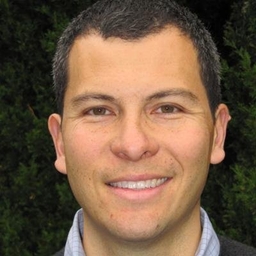
Steve Chen
Founder and CEO at Boldin
Account run by the founder of Boldin (formerly NewRetirement), which offers Financial Planning and Management as a Service ☁️😊
Articles
-
4 weeks ago |
boldin.com | Steve Chen
In this episode of Boldin Your Money, Steve Chen talks with Barry Ritholtz about his journey from law to leading a $6B wealth management firm. They discuss Barry’s book How Not to Invest, focusing on avoiding common mistakes, tuning out media noise, and the value of humility and process in investing. The conversation covers tech’s role in finance, behavioral biases, and how to build smarter, tax-efficient portfolios in a rapidly evolving market.
-
2 months ago |
boldin.com | Steve Chen
Individual Advisor Enterprise Planning Pricing Blog Community Editorial Team April 10, 2025 In this episode of Boldin Your Money, host Steve Chen and guest Mike Himmelfarb unpack the newly announced “Liberation Day” tariffs and their sweeping impact on global markets, economic strategy, and personal finance.
-
Jan 30, 2025 |
boldin.com | Steve Chen
Individual Advisor Enterprise Planning Pricing Blog Community Steve Chen January 30, 2025 In this episode, we sit down with Mike Richardson, former SVP and CTO of Nationwide, who retired at 55 to embrace a fulfilling second act. Mike shares his inspiring journey of building a financial plan, navigating early retirement, and redefining purpose.
-
Jan 24, 2025 |
sportsmedicine-open.springeropen.com | Hai Li |Xin Wei |Steve Chen |Haiquan Qin |Hongke Jiang |Majed M. Alhumaid | +3 more
While the effects of sleep deprivation on cognitive function are well-documented, its impact on high-intensity endurance performance and underlying neural mechanisms remains underexplored, especially in the context of search and rescue operations where both physical and mental performance are essential. This study examines the neurophysiological basis of sleep deprivation on high-intensity endurance using electroencephalography (EEG). In this crossover study, twenty firefighters were subjected to both sleep deprivation (SD) and normal sleep conditions, with each participant performing endurance treadmill exercise the following morning after each condition. EEG signals were recorded before and after high-intensity endurance exercise, and power spectrum analysis and functional connectivity analysis were performed on sleep related frequency bands rhythm: δ (0.5–4 Hz) and θ (4–8 Hz). The EEG power spectral and functional connectivity were measured by repeated measure analysis of variance. The SD condition had an average sleep duration of 3.78 ± 0.69 h, while the duration for normal sleep was 7.63 ± 0.52 h. After high-intensity endurance exercise, the SD condition had a higher maximum heart rate (p < 0.05) and shorter exercise time (p < 0.05) than normal sleep. Compared with before exercise, the δ band in the left parietal lobe P7 channel increased significantly (p < 0.01), and the θ band in the central Cz channel and the left and right parietal lobe P7 and P8 channel increased significantly (p < 0.01 & p < 0 0.05) in SD and normal sleep conditions after exercise. After exercise, compared with normal sleep, the δ band power in occipital O1 and Oz channels and parietal P7 and TP7 channels in SD significantly decreased (p < 0.05 & p < 0.01); the power of the θ band decreased significantly in the occipital O1 channel, central CZ channel and the left and right parietal P7 and P8 channel (p < 0.05 & p < 0.01). Whole connectivity showed a significant increase (p = 0.001) in the δ band for the SD condition at post-exhaustion. Local connectivity analysis identified a localized network in the δ band with reduced (p < 0.001) post-exhaustion in the SD condition displaying inter-hemispheric differences in certain connections (FP1-CP4, T7-C4, T7-TP8, and O1-FT8) and intra-hemispheric (C3-CPz and Pz-P4) variations. Sleep deprivation significantly reduced maximum endurance performance, indicating decreased neural activity in the central and parietal brain regions. Alterations in δ and θ frequency band power, along with disrupted connectivity, may highlight the neurophysiological basis underlying this decline. • Sleep deprivation significantly impairs high-intensity endurance performance, demonstrated by reduced time to exhaustion and increased maximum heart rate compared to normal sleep conditions. • Sleep-deprived states result in a marked decrease in δ and θ band activity within the central and parietal brain regions, which are essential for motor control and endurance capacity. • Sleep deprivation diminishes the efficiency of information transmission within the δ band network, suggesting disrupted connectivity that may hinder cognitive and motor processes critical to sustaining performance.
-
Dec 6, 2024 |
boldin.com | Steve Chen
Steve Chen welcomes Christine Benz, Director of Personal Finance at Morningstar, to discuss her book How to Retire: 20 Lessons for a Happy, Successful, and Wealthy Retirement. Christine shares practical strategies for retirement planning, including tax-efficient decumulation, dynamic spending, and the bucket approach for managing cash flow and investments.
Try JournoFinder For Free
Search and contact over 1M+ journalist profiles, browse 100M+ articles, and unlock powerful PR tools.
Start Your 7-Day Free Trial →X (formerly Twitter)
- Followers
- 4K
- Tweets
- 10K
- DMs Open
- Yes